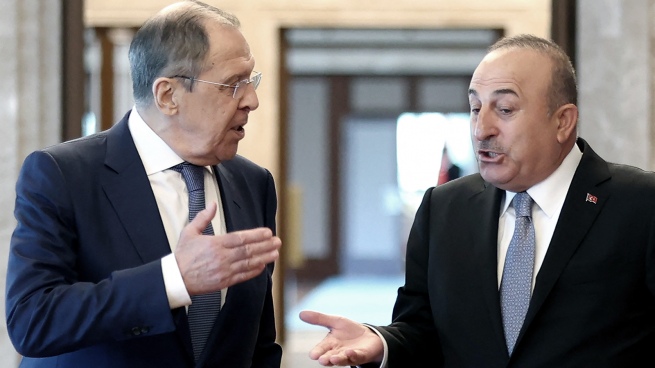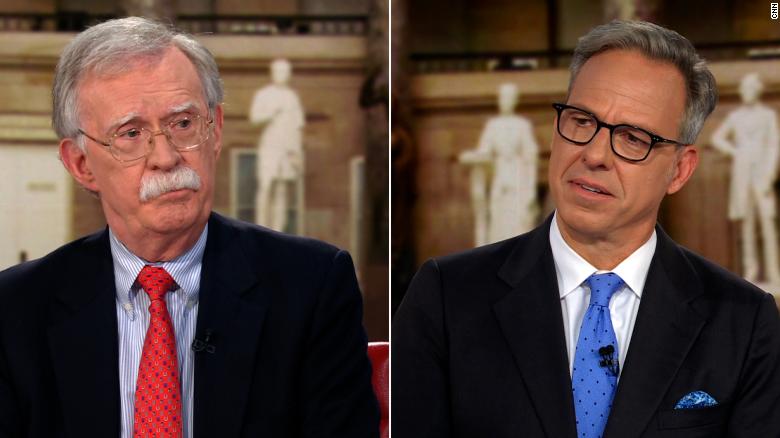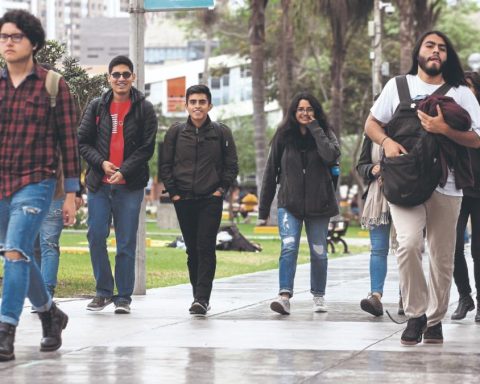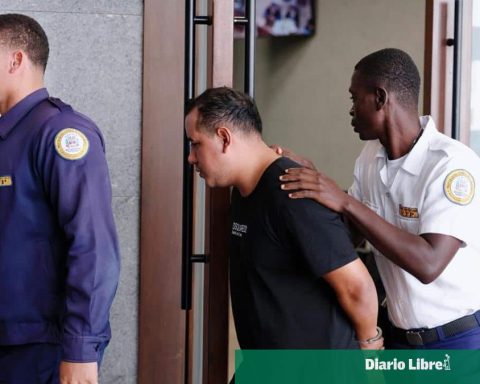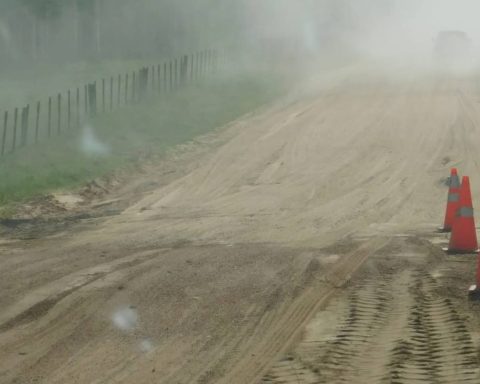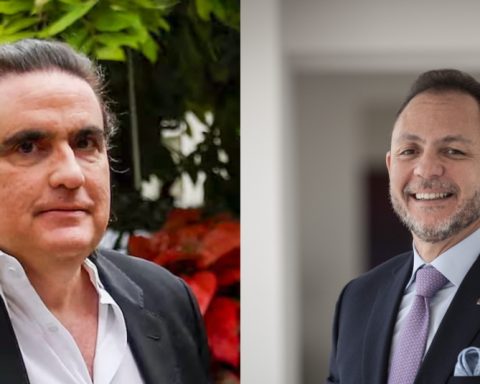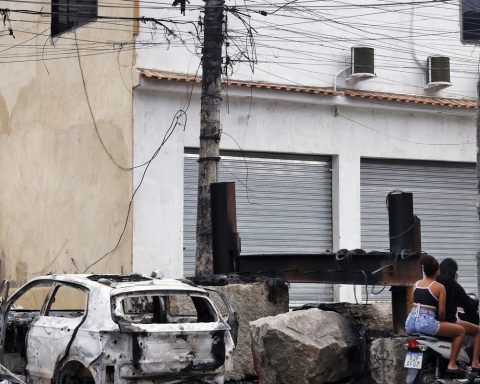Russia and Ukraine made some progress on Wednesday in their first meeting in months to discuss in Turkey a UN plan to export war-blockaded Ukrainian grain through the Black Sea, as more civilians were killed in new Russian attacks.
The two parties agreed to promote a coordination center dedicated to the export of grains for the Ukrainian ports.
The agreement establishes a series of “basic technical aspects” for the control of food shipments through the Black Sea, as well as to guarantee their safety in the shipping routes, declared the Turkish Defense Minister, Halusi Akar, after a first session on the subject held today in Istanbul, in which these two delegations participated together with Turkish and United Nations representatives, the first face-to-face meeting between Russians and Ukrainians since March 29.
“It is an important step taken to contribute to the solution of the food crisis, cereals and other foodstuffs, all the details on the safe transfer of loaded ships by sea have been studied,” he added, Turkish news agencies Anatolia and Europa Press reported. .
In addition, the two sides resolved to engage in new talks on the matter “next week,” the Turkish defense minister announced in a statement.
Akar stressed that the delegations, made up of defense experts from both belligerent countries, agreed on the need to implement “common controls” in ports and in the media to “guarantee the security of transfer routes” of goods in the Black Sea.
For his part, the Secretary-General of the United Nations, António Guterres, celebrated the four-party meeting on Twitter, which he described as a “critical step” for unlocking.
Ukraine is one of the world’s largest exporters of wheat and other cereals. Some 20 million tons of grain are currently blocked in the ports of the Odessa region by the presence of Russian warships and mines, placed by kyiv to defend its coast.
In an interview with the Spanish newspaper El País, Ukrainian Foreign Minister Dmytro Kuleba was relatively confident in a positive outcome of this dialogue.
“We are two steps away from reaching an agreement with Russia,” Kuleba said. “If they really want to, grain exports will start soon,” she added.
Kuleba said he suspects Russia is blocking such shipments to deprive Ukraine of income: “They know that if we export, we will receive income from international markets and this will make us stronger,” he said.
Russian Defense Ministry spokesman Igor Konashenkov said Moscow “presented a package of proposals to reach the fastest practical solution” to this grain crisis.
Yesterday, Russia indicated that its requirements include the right to “search ships to prevent arms smuggling”, a request that kyiv rejected.
Turkey, a NATO member and ally of both sides in the conflict, says it has 20 merchant ships waiting in the Black Sea that could be quickly loaded with Ukrainian grain.
Ankara is stepping up diplomatic efforts to facilitate the resumption of exports. So far, Turkish efforts, made at the request of the UN, have failed to unblock the situation.
Today’s meeting took place against a background of rising global food prices, threatening several regions with famine.
In this sense, the International Committee of the Red Cross (ICRC) today expressed its concern for the hundreds of millions of people at risk of suffering hunger at critical levels due to the rise in extreme poverty, inequality and food insecurity due to the in the food and energy sectors, aggravated by the war in Ukraine.
“Armed conflicts, political instability, climate shocks and the secondary effects of the Covid-19 pandemic have weakened capacities to cope with and recover from shocks,” ICRC Director General Robert Mardini said in a statement. .
“The collateral effects of the armed conflict in Ukraine have worsened an already critical situation,” he warned.
The conflict in Ukraine has contributed to a sharp rise in fuel, fertilizer and food prices globally, impacting in particular net food-importing countries or others mired in political or economic crisis and dependent on foreign aid, especially all in Africa and Asia.
The war in Ukraine is also endangering energy supplies, especially in Europe, which is heavily dependent on Russian gas.
The Russian gas giant Gazprom warned today that it cannot guarantee the proper functioning of Nord Stream 1 until it has a turbine that is being repaired in Canada, amid fears in European countries that Moscow will permanently interrupt its deliveries. due to war tensions.
The operation of the gas pipeline has been interrupted since July 11, initially for ten days, due to maintenance operations, explained the gas giant, although previous weeks Russia had already sharply reduced supply, arguing the lack of German turbines.
Canada, which had received a turbine for repair, announced on Saturday that it would return it to Germany, despite sanctions imposed against Moscow and calls from Ukraine not to “submit to Kremlin blackmail.” Ottawa justified its decision by saying that it does not want to increase the risk of an energy crisis in Europe.
Since the beginning of the Russo-Ukrainian war, Germany has closed another Russian gas pipeline that was due to come into operation, the Nord Stream 2, and is striving to reduce its dependence: 35% of German energy imports come from Russia, when before the war was 55%, in a country where more than 50% of home heating is based on gas.
In this context, the Government of Spain today summoned the energy sector to address the preparation of a contingency plan to face the threat of a possible cut in the gas supply by Russia next winter.
Meanwhile, in Ukraine, at least five civilians died today in a Russian bombardment that destroyed a building near the city of Mikolaiv, in the south of the country, and reached other non-military targets, the Presidency reported.
Mikolaiv, a key city on the route to Odessa – Ukraine’s largest port – located further east, had already been bombed when the Russian army tried to seize it at the beginning of the war. It is located about 95 kilometers northwest of Kherson, the capital of the province of the same name, which was conquered by Russia in the first days of the invasion launched on February 24.
